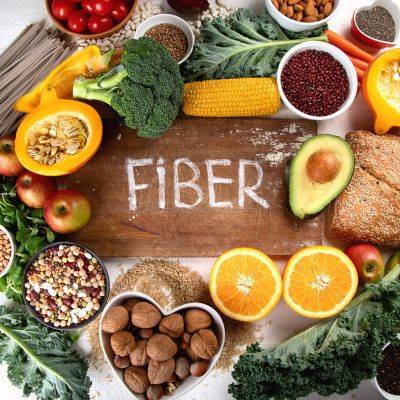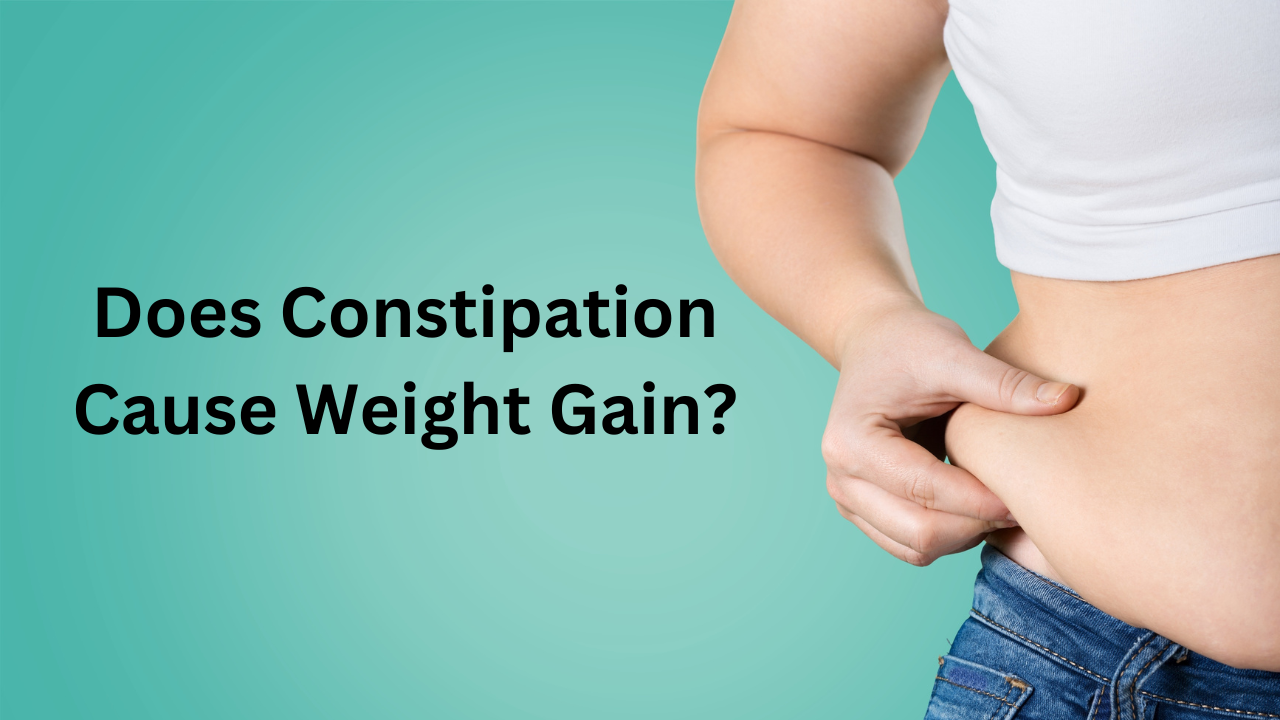Have you ever experienced feeling like your jeans are fitting a little bit tighter than usual, and you are wondering if there is something more to blame than that extra pizza slice?
Well, let’s talk about something that might shock you: CONSTIPATION.
Yep, you read that right! It is not simply about bathroom struggles and stomach discomfort—it might even have a link to those sudden pounds you have been noticing.
Therefore, if you want to understand whether constipation could be the sneaky culprit behind your weight gain, stick around!
What Leads to Constipation?
Constipation, a condition characterized by infrequent bowel movements occurring fewer than three times per week, is primarily caused by factors that lead to hard, dry stools, often requiring significant effort and potentially causing discomfort.
If the process of passing stool takes more than 10 minutes of straining and exertion, it indicates constipation. Moreover, extended constipation can result in painful anal membrane tears and hemorrhoids, which can be quite uncomfortable.
This gastrointestinal issue is notably prevalent. Each year, no less than 2.5 million individuals seek medical attention for constipation, as reported by the Cleveland Clinic.
The primary contributors to infrequent bowel movements include:
- Inadequate intake of dietary fiber.
- Insufficient consumption of water.
- Lack of regular physical activity.
Can Constipation Be the Reason Behind Those Unexpected Extra Pounds?
The answer isn’t as straightforward as a simple yes or no. It’s like a complicated relationship status – sometimes they’re linked, and other times they’re not quite so connected. So, let’s break it down a bit further.
First, constipation and weight gain have a connection, but it’s a bit more nuanced than you might think. Picture this: When dealing with constipation, your body might feel bloated and full. Those uncomfortable sensations can make you feel like you’re carrying a few extra pounds. And in a way, you are – but it’s not the weight gain you need to stress over. It’s more like a temporary situation.
When constipated, your digestive system isn’t working at its optimal speed. This can mean you’re holding onto waste and extra water, adding a bit of heft to the scale. But fear not! Once you relieve that constipation, those few hundred grams you’ve gained will likely return to business as usual.
Now, let’s talk about the real culprits behind this weighty issue: the factors that lead to constipation in the first place. Think about your daily habits. Are you staying hydrated? Eating a balanced diet that’s rich in fiber? Getting enough exercise to keep things moving smoothly down there? If you’re slacking in any of these departments, it’s not just your digestion that could suffer – your weight might take a hit, too.
Your digestive system can slow down when you don’t drink enough water or load up on foods that lack fiber. And as your metabolism takes a bit of a nosedive, those extra calories might start piling up more quickly. It’s like your body’s saying, “Hey, I’m not getting what I need, so I’m going to hang on to whatever I can.”
3 Habits to Keep Constipation and Weight Gain at Bay
Nobody likes feeling sluggish or bloated, mainly due to constipation and those sneaky extra pounds. Fortunately, some simple daily habits can help you bid farewell these discomforts. Let’s dig in and explore three practices that can make a world of difference.
- Bulk Up on Fiber

Think of fiber as your digestion’s best friend. It’s like a gentle usher that guides waste through your system, preventing traffic jams. Consuming fiber-rich foods soaks up water in your digestive tract, making your stool soft and easy to pass.
Dr. Chapman, a pro in the field, compares fiber to a stool mediator – when it’s too soft, it firms things up, and when it’s too hard, it softens the situation.
So, how much fiber is your goal? Around 25 to 36 grams daily for most moderately active adults in the U.S. That’s approximately 14 grams per 1,000 calories. To put it in perspective, a medium pear packs about 5.5 grams of fiber, while a cup of bulgur boasts 8.2 grams. It’s like nature’s scrub brush for your insides.
- Stay Refreshed and Hydrated

Water isn’t just your body’s best friend; it’s a lifeline for your digestive system. Dehydration can make your stool rigid and stubborn, leading to constipation. Dr. Chapman spills the truth – if you’re not keeping up with your water intake, your stool might not get the hydration memo.
But what if you’re not a fan of plain water? Sorry, no substitute comes close. However, you can jazz it up with fruit slices or choose sparkling water with zero calories. Dr. Chapman dishes out a golden rule: avoid sugary drinks unless you’re a pro athlete needing the boost.
As for the magic number of ounces to aim for daily, think of it this way: 64 ounces is the minimum, and your body weight divided by two ounces is the real deal. It might sound like a tall order, but Dr. Chapman’s got a trick – measure your intake in a container and carry it around during the day. Sip by sip, you’ll keep constipation at bay.
- Get Those Muscles Moving

Picture this: your abdominal wall muscles and diaphragm work harmoniously, ensuring a seamless poop process. When these muscles are in top-notch condition, your digestive system has an easier time keeping things regular. This is where physical activity steps in as the superhero of digestion.
Harvard Health Publishing says that active folks tend to avoid constipation. A study in PLOS One even confirms that being a couch potato can damper digestion, while physical activity can save the day.
What’s the goal? According to the U.S. Department of Health & Human Services, aim for 150 minutes of moderate-intensity aerobic activity weekly (think brisk walking or cycling) or 75 minutes of high-intensity action (like HIIT workouts) for maximum benefits. These aren’t just exercise minutes; they’re your ticket to a smoother, more comfortable digestion journey.
So there you have three habits that’ll help you kick constipation and wave goodbye to those pesky pounds. With fiber, hydration, and movement on your side, you’ll feel lighter and more energetic in no time.



